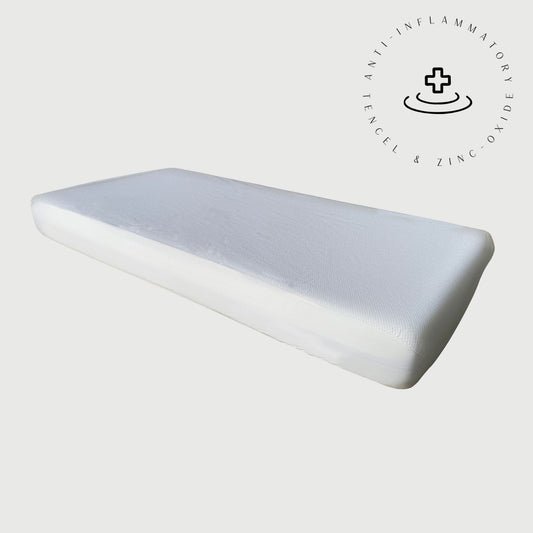Eczema, also known as atopic dermatitis, is a chronic skin condition that causes itchy, red, and inflamed skin.
Unfortunately, many misconceptions surround eczema, leading to frustration and potentially hindering proper treatment. Let's bust some of these common myths:
1. Myth: Eczema is contagious.
Truth: Eczema is not contagious. It is an internal condition, not caused by germs or infections that can spread from person to person.
2. Myth: Eczema is caused by poor hygiene.
Truth: While good hygiene is essential, eczema is not caused by dirt or lack of cleanliness. In fact, excessive washing or harsh soaps can often worsen eczema symptoms.
3. Myth: Eczema is just "dry skin."
Truth: While dryness is a common symptom, eczema is more complex than simply dry skin. It involves an overactive immune system that triggers inflammation and skin irritation.
4. Myth: Eczema will disappear on its own.
Truth: For some children, eczema may improve with age, but for many, it's a lifelong condition. Early and consistent management is crucial to minimize symptoms and prevent complications.
5. Myth: There's no hope for managing eczema.
Truth: While there's no cure, there are many effective ways to manage eczema. This includes:
- Moisturizing regularly: Apply emollients liberally and frequently to keep the skin hydrated.
- Identifying and avoiding triggers: Common triggers include allergens, irritants, and stress.
- Using prescribed medications: Topical corticosteroids, calcineurin inhibitors, and antihistamines can help reduce inflammation and itching.
- Dietary considerations: In some cases, food allergies or sensitivities may contribute to eczema flare-ups. Also read our blog on the relation between the gut and the skin.
Empowering Parents
Understanding these facts can empower parents to:
- Make informed decisions about their child's eczema care.
- Communicate effectively with healthcare providers.
- Create a supportive and understanding environment for their child.
- Find effective strategies for managing eczema symptoms.
Remember: If you have concerns about your child's eczema, consult with a pediatrician or dermatologist. They can provide personalized guidance and develop a comprehensive management plan.
Disclaimer: This information is for general knowledge and informational purposes only and does not constitute medical advice. Always consult with a qualified healthcare professional for any health concerns or before making any decisions regarding your health or the health of your child.







